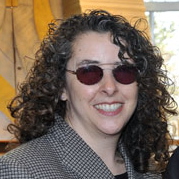 August 23 was the 533rd anniversary of the death of King Richard III, a fact that was blogged and Tweeted that day by a medievalist website with the confident conclusion, “The death of Richard III is considered the end of the medieval era.” As a book historian, I disagree. For me, the medieval period begins with the slow transition from roll to codex and ends with the equally slow transition from manuscript to printed book. But we all know that periodization is anachronistic, complicated, relative, and messy. Every medievalist has their own sense of the parameters of our field. And so in response to the Richard III declaration I asked an innocent question of #MedievalTwitter: When do YOU think the Middle Ages ended? Clearly, I struck a nerve. After 758 “Likes,” 175 “Retweets,” and nearly 200,000 “Impressions,” I had my answer. The right answer isn’t Dante or Columbus or Luther or Henry VIII or even the Bolsheviks. It isn’t the Fall of Constantinople or the suppression of English monasteries or the “invention” of dimensional perspective. The right answer is, of course, “It depends.” The first editor of Speculum, E. K. Rand, put it best in his introduction to the first volume of our journal: “Just how many centuries are included in the Middle Ages everybody knows but no two can define in the same way…[we do] not consider dates and border-lines, if the point of [the] discourse is directed at what everybody would agree is Mediaeval” (Speculum 1 (1926), p. 4). In other words, we can’t define it, but we know it when we see it.
August 23 was the 533rd anniversary of the death of King Richard III, a fact that was blogged and Tweeted that day by a medievalist website with the confident conclusion, “The death of Richard III is considered the end of the medieval era.” As a book historian, I disagree. For me, the medieval period begins with the slow transition from roll to codex and ends with the equally slow transition from manuscript to printed book. But we all know that periodization is anachronistic, complicated, relative, and messy. Every medievalist has their own sense of the parameters of our field. And so in response to the Richard III declaration I asked an innocent question of #MedievalTwitter: When do YOU think the Middle Ages ended? Clearly, I struck a nerve. After 758 “Likes,” 175 “Retweets,” and nearly 200,000 “Impressions,” I had my answer. The right answer isn’t Dante or Columbus or Luther or Henry VIII or even the Bolsheviks. It isn’t the Fall of Constantinople or the suppression of English monasteries or the “invention” of dimensional perspective. The right answer is, of course, “It depends.” The first editor of Speculum, E. K. Rand, put it best in his introduction to the first volume of our journal: “Just how many centuries are included in the Middle Ages everybody knows but no two can define in the same way…[we do] not consider dates and border-lines, if the point of [the] discourse is directed at what everybody would agree is Mediaeval” (Speculum 1 (1926), p. 4). In other words, we can’t define it, but we know it when we see it.
The parameters embraced by the Medieval Academy of America in the pages of Speculum and throughout our work have always been flexible and are becoming even more expansive. Under the editorship of Sarah Spence the journal has expanded its mandate geographically, topically, and chronologically, reflecting a more global perspective. The increased topical diversity goes hand-in-hand with our efforts to make the Academy a more welcoming place for all medievalists, and several new committees, policies, and grant-making programs were established in 2018 with that very goal in mind. The upcoming Annual Meeting (March 7-9 at the University of Pennsylvania) reflects this promising direction in its theme of “The Global Turn in Medieval Studies.” I hope you will join us in Philadelphia for what is certain to be a memorable conference.
You will soon be receiving a renewal notice for 2019. I hope that you have found membership in the Academy to be worthwhile and that you will renew when the time comes. If you can, please consider supplementing your membership dues by becoming a Contributing or Sustaining Member, or by making a donation to our endowment or to the Belle Da Costa Greene Fund. Your donations help subsidize reduced membership dues for student, contingent, unaffiliated, and retired medievalists and also make it possible for us to give out more than $100,000 in grants and fellowships each year (see below for details about upcoming application deadlines).
Whatever your field, role, subject, or demographic, there is a place for you in the Medieval Academy community of more than 3100 medievalists. As you gear up for a new academic year of whatever it is you’re doing – learning, researching, reading, writing, job-hunting, teaching, curating, editing, blogging, chairing – I wish you a productive and satisfying year full of friends and colleagues and discovery.
Please feel free to contact me at any time with your concerns, questions, and ideas.
Have a great year! I look forward to working with you.
– Lisa
Lisa Fagin Davis
Executive Director, Medieval Academy of America



